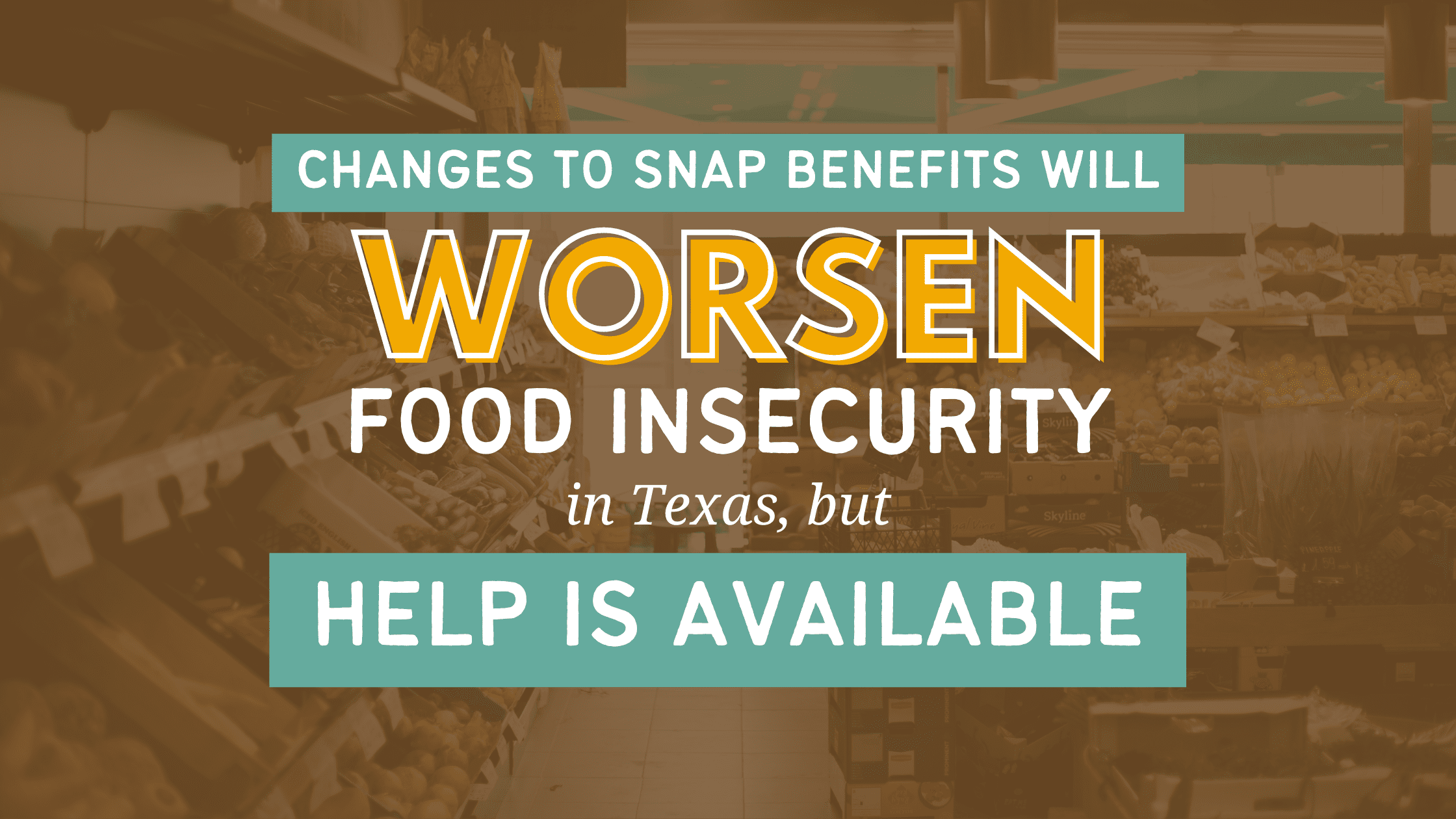Texans deserve not to worry about their next meal.
Since Spring 2020, the start of the COVID-19 Pandemic, Texas families have received extra benefits on their Supplemental Nutrition Assistance Program (SNAP) cards, known as emergency allotments. This extra boost has helped families stay afloat during uncertain times. But in December, Congress passed the Consolidated Appropriations Act, separating the emergency allotment from the Public Health Emergency and requiring states to stop issuing emergency allotments after the next SNAP payment this week. This will put many Texas families in danger of going hungry, as all SNAP households will experience a minimum reduction of $95 in their monthly benefits, with the average Texas household losing $211 in benefits. Statewide, the loss of emergency allotments will mean families will see a $340 million cut in SNAP benefits each month — a 35% cut in assistance.
SNAP households will return to the regular allotments uploaded to their Lone Star Card before the start of the Public Health Emergency, which often failed to meet the needs of families even before record increases in the price of goods and services such as food, transportation, and living expenses due to inflation. Unfortunately, Texans of color, low-income Texans, seniors, and college students will be impacted the most.
In December 2022, the cost of food bought at a grocery store or supermarket was 11.8% higher than it was in December 2021. Take the price of eggs, for example: in February 2021, the average price of a dozen eggs was $2.92. But by February 2022, the price had risen 11.4% to $3.29.
Without the SNAP Emergency Allotment, benefits are calculated based on household size, income, and expenses. SNAP clients should report up-to-date information as soon as possible to receive all the benefits for which they are eligible. Families can take advantage of deductions offered by Texas Health and Human Services (HHSC) and perks associated with Double Up Food Bucks, which matches SNAP benefits dollar-for-dollar when they are spent at participating locations. Texans impacted by the ending of emergency allotments can also use food banks as a resource to supplement their food supplies.
Despite the projected reduction in benefits, there is some good news. The funding previously used for the emergency allotments will extend Summer Electronic Benefit Transfer (Summer EBT) benefits for Texas children who qualify for free or reduced-price school meals, ensuring fewer Texas children go hungry during the summer months.
The ending of SNAP emergency allotments after this week will be a major loss, and many families will struggle to put food on the table. Texas lawmakers need to work to strengthen access to SNAP. This will help ensure families and children don’t have to worry about food.
Learn more about how the ending of SNAP emergency allotments may affect you and your family here, courtesy of Feeding Texas.
